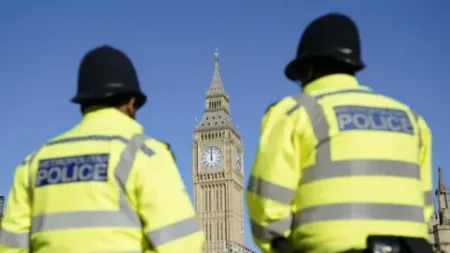In the tumultuous political landscape following former President Donald Trump’s return to power, a sense of urgency and dissent has erupted across the United States. This scenario is vividly depicted through multicultural protests, where an enormous balloon caricaturing Trump, with a military uniform that mimics his style and a striking golden hairpiece, serves as an eye-catching symbol of the widespread discontent with his leadership. As cities like downtown Los Angeles resonate with chants demanding accountability — “Hands off democracy! Stop the millionaire tax cut! Traitor Trump!” — it becomes evident that collective resistance is forming against his perceived authoritarian undertones.
From the heart of many protests, one woman’s voice rings out with palpable concern for her grandchildren, echoing the fears held by many Americans about the impact of Trump’s policies on future generations. Meanwhile, prominent figures like independent Senator Bernie Sanders step into the fray, delivering impassioned speeches that bolster the burgeoning movement for democracy and civil rights. Sanders asserts that Trump operates outside constitutional boundaries, threatening fundamental liberties, as he calls for a united stand against an administration perceived as tyrannical.
Despite the initial hesitance from voters to engage markedly with a second Trump term, a palpable escalation in public challenge emerges. Lawmakers, both Republican and Democrat, face mounting pressures from constituents who demand accountability, craving action against Trump’s policies deemed outrageous. Public forums become battlegrounds for uncomfortable confrontations, where constituents confront their representatives directly, demanding answers and expect immediate action against what they perceive as undeniable breaches of democratic norms. Elected officials like Republican Senators Chuck Grassley and Michael Baumgartner are heckled over their perceived complicity in Trump’s actions, exposing a growing chasm in trust between leaders and voters.
The portrayal of Trump as a furious figure intent on partisan revenge takes center stage, revealing a devious agenda seeking retribution against those who oppose him. His threats against political foes — including high-profile Democrats such as Joe Biden and Kamala Harris, along with notable Republicans who dared to challenge him — indicate a chilling landscape of retribution. Critically, even former members of his administration who have contradicted Trump or drawn attention to his controversial practices find themselves swept into his punitive crosshairs.
In these first 100 days, Trump’s actions are striking, as he strips protections and pursues legal action against critics vehemently. Aspects of his presidency evolve, reflecting a dystopian shift where personal vendettas manifest in the executive actions he undertakes. His approach resonates with his base, shown in recent polls indicating a significant shift where 71% of Republican voters identify with the MAGA ethos. This incorporation of personal outrage as a political tool further consolidates his base under a banner promising transformation.
However, this fervent support masks troubling signs. As economic indicators falter and inflation weighs on the public, Trump’s approval ratings sink, suggesting a divergence between his radical governance style and the economic realities confronting Americans. Analysts point out the shifting public sentiment moving away from blaming former President Biden to direct lashing against Trump for economic downturns, indicating an increasingly precarious political future for the former president.
Meanwhile, as tensions boil over, even mainstream media outlets are embroiled in battles for narrative, with Trump adamantly pushing back against coverage he deems unfavorable. This war against perceived equity manifests in an attempt to advocate for control over press narratives, affecting how stories are framed from the Oval Office. Within this chaos, prominent figures from various political backgrounds express fear and concern over the sustainability of democracy under Trump’s heavy-handed style.
The unease surrounding this administration extends to established institutions like Harvard, sparking legal battles over federal funding and freedom of academic expression. These actions, along with controversies surrounding Trump’s pursuit of policies targeting individuals based on their gender identity or political affiliations, culminate in a deeply fractured society uncertain of its own trajectory.
As Trump’s administration clouds the nation’s political, social, and legal landscapes, the uncertainty looms larger than ever. Confusion reigns regarding whether these radical shifts herald a new norm or if they’re destined to be overturned by future elections or judicial actions. The closing question after 100 tumultuous days remains: what better understandings will emerge in a future rife with uncertainty, as Americans grapple with the political precipice on which they now stand?











